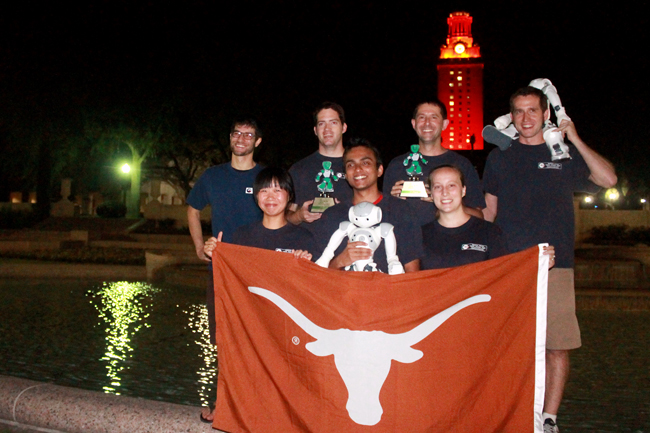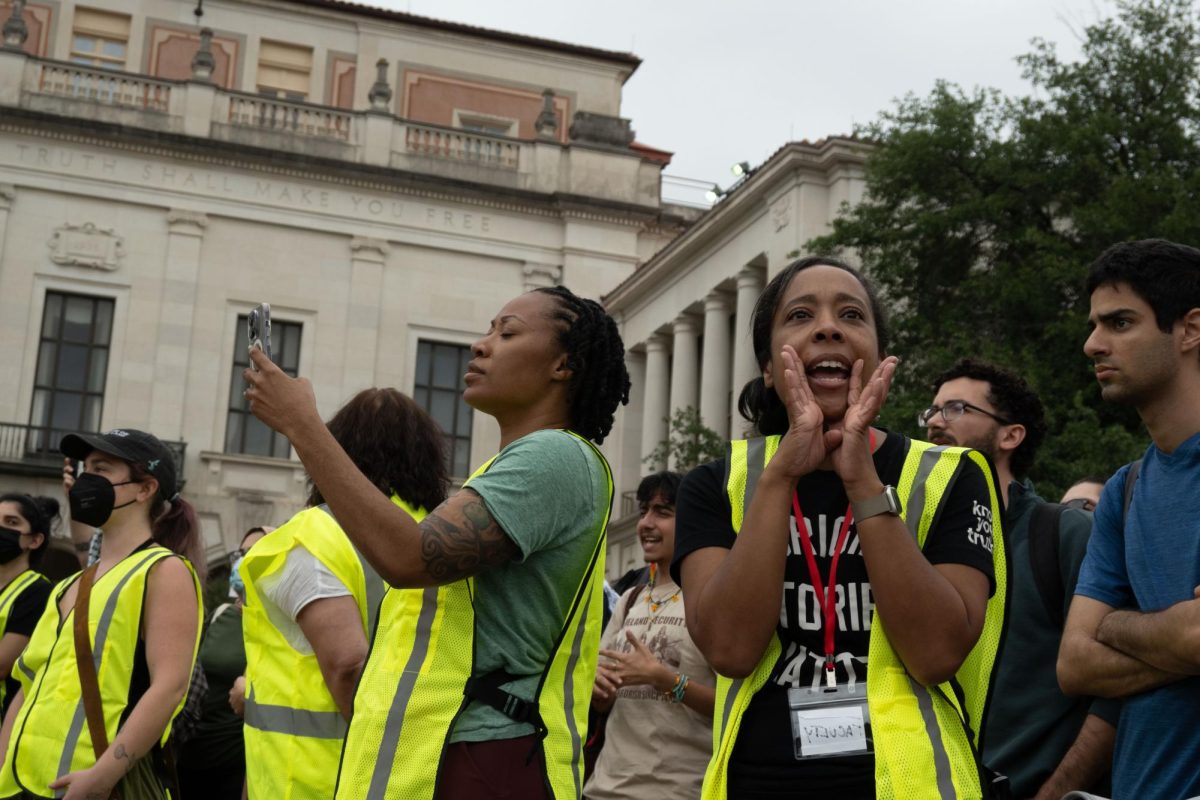A series of UT robots faced off against robots from around the world in a tournament evaluating their vision, movement and soccer skills. Called UT Austin Villa, the robots and their creators scored a victory in two major divisions at RoboCup 2012, a worldwide artificial intelligence competition.
UT Austin Villa, a UT robotics team, participated in the RoboCup 2012 tournament last week in Mexico City. The tournament, held June 18-24, forces participants to work in teams and use strategic reasoning to promote advancement in robotics and artificial intelligence research, according to its website. Led by associate computer science professor Peter Stone, UT Austin Villa is comprised of the two teams, one which competes in the 3-D Simulation League and the other in the RoboCupSoccer Standard Platform League.
Teams participating in the Standard Platform League use identical robots to direct their focus on the code that controls the robot. The UT team developed code to help the robots move autonomously by enabling robots to have certain human characteristics, such as sense of vision, localization, locomotion and coordination.
Jake Menashe, an SPL member who participated in the tournament, said the work he and his team put into RoboCup this past spring and last minute tweaks at the competition led to the team’s victory. The SPL team took on the University of Bremen in Germany in the championship game and came out on top with a final score of 4-2.
“At the final game in particular, I didn’t know what to expect. I’d heard all kinds of stories about our opponent, B-Human, [the University of Bremen team], never losing a game and easily winning matches 10-0,” Menashe said. “Each score was exhilarating and seeing all of our work come together in the final was really satisfying.”
The 3-D Simulation League consists of teams coding and using virtual robots projected onto the RoboCup Soccer Server System, a 3-D virtual soccer stadium. Robot teams competing in the virtual soccer tournament operate by the same rules as human soccer players and win by scoring the most goals. Team members included computer science graduate student Patrick MacAlpine, and computer science seniors Adrian Lopez-Mobilia and Nick Collins.
Stone said the students have been using humanoid Aldebaran Nao robots, humanoid robots sometimes used in education and research. He said some of the team members had their first experience with the robots in a computer science class last fall, while the other students did not start working with the robots until the spring semester. Stone said UT Austin Villa was the strongest at recognizing where the opposing robots were in the soccer tournament, which helped them win.
“It has been an ongoing research effort,” Stone said. “The code used in the robots is one that has evolved over time.”
Tekin Mericli, a UT alumnus and former member of the UT Austin Villa, said the success of the team this year most likely came from building on top of existing infrastructure to further improve the code. He said when he was an active member of the team, the members used robotic dogs and held test games against the previous year’s code on a regular basis to make sure they were in good shape for the competition.
“Even though we were programming the Aibo robots back then and not the Nao robots, which are the current standard platform of the league, I’m sure the team kept working along the same principles since then and finally won the first place,” Mericli said.
Computer science senior Peter Farago said he is impressed by the success of both leagues this year. He said these victories show the ambitions people have for artificial intelligence and reveals how far they have come in the field.
“If you can create a robot soccer team that can play against a human soccer team, this might lead to building a human soldier in the distant future,” Farago said. “It is pretty amazing what these people are doing.”
Clarification on July 3 – Jacob Menashe said he felt the work he and his team put in last minute led the team to victory. An earlier version of this story only mentioned the work Menashe put in.





















